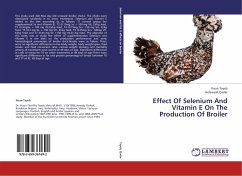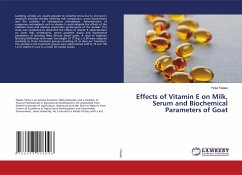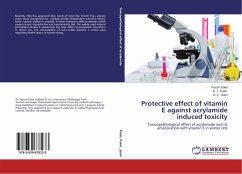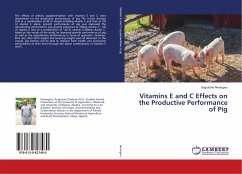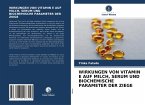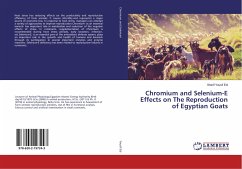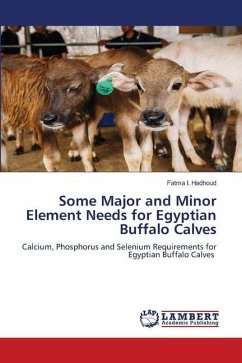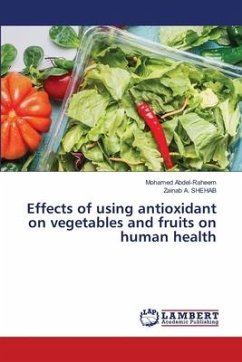This study used 420 Ross day old unsexed broiler chicks. The chicks were distributed randomly in to seven treatments. Selenium and Vitamin E added to the diet according to as follows: T1 control group (no supplemented Se and Vitamin E). T2 (0.15mg Se + 100 mg Vit. E)/Kg feed, T3 (0.3mgSe + 100 mg Vit.E)/kg feed, T4 (0.15mg Se+ 150 mg Vit. E)/kg feed, T5 (0.3 mg Se + 150 mg Vit. E)/kg feed, T6 (0.45mg Se+ 100mg Vit. E)/kg feed and T7 (0.45 mg Se +150 mg Vit.E) /kg feed. The objective of this study was to study the effect of supplementation Selenium and Vitamin E in the diets on the production performance and some hematological parameters of broiler chick.Results were as fallow: There were no significant differences in live body weight, body weight gain, feed intake, and feed conversion ratio, carcass weight dressing and mortality among all treatments and control at 49 days of age. Significant differences in ratio of wings for T6 on other treatments at 49 days of age.There were significant differences in fat and protein percentage of breast between T6 and T7 at 42, 49 days of age.
Bitte wählen Sie Ihr Anliegen aus.
Rechnungen
Retourenschein anfordern
Bestellstatus
Storno

